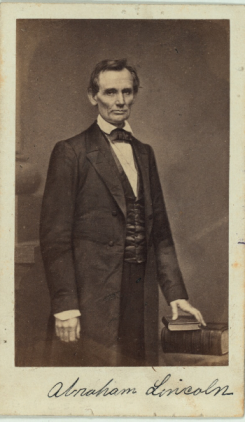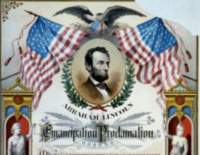 A while ago, I was dumbstruck by a comment a Republican party insurgent in Utah made about her former governor, Jon Huntsman, Jr., a Republican politician who received strong kudos from the libertarian Cato Institute. “‘On a good day, a socialist,’ said Darcy Van Orden, a co-founder of Utah Rising . . . . ‘On a bad day, he’s a communist’.” And, of course, people like Ms. Van Orden consider it obvious that Barack Obama is a socialist, if not worse. David Koch, one of the brother team of conservative financial angels, commented, for example, that Obama’s “father was a hard core economic socialist in Kenya . . . [and Obama] was apparently from what I read a great admirer of his father’s points of view.”
A while ago, I was dumbstruck by a comment a Republican party insurgent in Utah made about her former governor, Jon Huntsman, Jr., a Republican politician who received strong kudos from the libertarian Cato Institute. “‘On a good day, a socialist,’ said Darcy Van Orden, a co-founder of Utah Rising . . . . ‘On a bad day, he’s a communist’.” And, of course, people like Ms. Van Orden consider it obvious that Barack Obama is a socialist, if not worse. David Koch, one of the brother team of conservative financial angels, commented, for example, that Obama’s “father was a hard core economic socialist in Kenya . . . [and Obama] was apparently from what I read a great admirer of his father’s points of view.”
Abraham Lincoln It is striking how the term “socialist” has been redefined so that almost any policy and anyone can get that label. Indeed, many a past president would qualify by these standards surely FDR, Truman, and Democrats through Clinton but so would Republican presidents. By the standards of people such as Ms. Van Orden and David Koch, Abraham Lincoln was surely an out-and-out “socialist-communist.”
Lincoln Socialism
Let’s consider the Lincoln record. During just one term (plus 45 days), Lincoln managed to do the following “socialist-communist” acts:
Taxed the Wealth Creators. In 1861, Lincoln signed a law enacting the nation’s first personal income tax. Eventually, those earning between $600 and $10,000 a year paid 3% and those making more paid a higher rate. This was the first move toward “progressive taxation” of individual effort and we still live with such taxes today.
Exploded Deficit Spending. When Lincoln took over from James Buchanan, the U.S. debt was $65 million; in 1865, it reached $2.7 billion a 4000 percent increase!
Led a Federal Takeover of Currency and Banking. Lincoln’s Legal Tender Act of 1862 created “greenbacks,” Federal paper money that Americans had to accept in place of gold and silver coins. And then the banking laws of 1863 and 1864 established a system of federally-chartered banks that undercut state-chartered institutions, in disregard of the 10th Amendment.
Forced People to Work for the Federal Government. Lincoln instituted the first national conscription act, forcing American men to give up their farms and to follow the orders of his generals. Lincoln also allowed men to buy their way out of the draft with a $300 fee, exacting more money for the Federal government.
Indulged in Government Giveaways to Special Interests. Lincoln gave away huge chunks of valuable national property to vested interests:
(1) Colleges: In 1862, Lincoln signed the Land Grant act, previously vetoed by President Buchanan; it gave away 300,000 acres (or the cash equivalent) to northern states for each of their congressional representatives to be used to establish colleges that would teach agriculture, engineering, and military tactics. Today, universities like U.C. Berkeley exist on that gift, teaching subjects like sociology and Arabic.
(2) Railroads: The Pacific Railroad Acts of 1862 and 1864 signed by Lincoln authorized the federal government to give away land and to go into debt selling bonds in order to finance the first transcontinental railroad.
(3) Land-Grabbers: In 1862, Lincoln signed the Homestead Act, also previously vetoed by President Buchanan. It eventually gave away 420,000 square miles 10% of all American land to squatters. Moreover, the Homestead Act generated a lot of waste, fraud and abuse.
 Expropriated Private Property for Redistribution. With the stroke of a pen and no constitutional authority, Lincoln expropriated about $4 billion worth of private property (in the form of human chattel), today equal in value to at least $100 billion, and handed it over to poor blacks (the human chattel themselves). Not even FDR was as redistributionist as that!
Expropriated Private Property for Redistribution. With the stroke of a pen and no constitutional authority, Lincoln expropriated about $4 billion worth of private property (in the form of human chattel), today equal in value to at least $100 billion, and handed it over to poor blacks (the human chattel themselves). Not even FDR was as redistributionist as that!
Who else?
If Lincoln turns out to be more of an activist “socialist/communist” than Obama, what Republican president can serve as a free-enterprise, small-government model for Ms. Van Orden, Mr. Koch, and their fellow activists?
Emancipation Proclamation graphic What about Teddy Roosevelt? Er, no. He went around “trust-busting” perfectly legitimate corporations; his pet “parks” project fenced off millions of acres of land from development by entrepreneurs.
Ike? No. Eisenhower came into office after 20 years of the New Deal and instead of trying to repeal all that socialist-style legislation, he largely left it in place. And he also left office with a blast against defense spending.
Nixon? You mean the guy who signed the EPA into law? Who started affirmative action programs? And who tried to establish a Scandinavian-style “guaranteed annual income”? No way.
Reagan, for sure! Well, when Reagan came into office, the national debt was 32% of the Gross Domestic Product and when he left it was 53% of GDP. He did sign the largest tax cut in American history in 1981, but then Reagan also signed largest tax increase in 1982. And Reagan approved a tax increase to “save” Social Security, the centerpiece of FDR’s New Deal, rather than repeal that piece of a European-style welfare state.
Then, George Bush, the younger? It’s true that he tried to move toward privatizing Social Security. But he quickly gave that up. More important, instead of attacking America’s version of socialized medicine the Medicare program he actually expanded it more than anyone has by adding the drug benefit, making socialized medicine for the elderly even more expensive!
It looks like there are few non-“socialist” heroes in the presidential list Herbert Hoover, perhaps, but he actually started the Reconstruction Finance Corporation to subsidize loans in an effort to kick-start recovery during the Depression. Maybe the only clean hero left is Calvin Coolidge.
Moral
If you define “socialist” accurately and realistically, no major figure on the American political scene (except perhaps for Bernie Sanders) qualifies. Certainly not Barack Obama, much less Jon Huntsman. But if you consider virtually every action of government in the economy as socialist, then virtually everyone qualifies as “socialist” notably, Honest Abe.
Written by Claude Fischer, Professor of Sociology. Published on Made in America ~ April 5, 2011.
 FAIR USE NOTICE: This site contains copyrighted material the use of which has not always been specifically authorized by the copyright owner. We are making such material available in our efforts to advance understanding of environmental, political, human rights, economic, democracy, scientific, and social justice issues, etc. We believe this constitutes a ‘fair use’ of any such copyrighted material as provided for in section 107 of the US Copyright Law. In accordance with Title 17 U. S. C. Section 107, the material on this site is distributed without profit to those who have expressed a prior interest in receiving the included information for research and educational purposes. For more information go to: http://www.law.cornell.edu/uscode/17/107.shtml
FAIR USE NOTICE: This site contains copyrighted material the use of which has not always been specifically authorized by the copyright owner. We are making such material available in our efforts to advance understanding of environmental, political, human rights, economic, democracy, scientific, and social justice issues, etc. We believe this constitutes a ‘fair use’ of any such copyrighted material as provided for in section 107 of the US Copyright Law. In accordance with Title 17 U. S. C. Section 107, the material on this site is distributed without profit to those who have expressed a prior interest in receiving the included information for research and educational purposes. For more information go to: http://www.law.cornell.edu/uscode/17/107.shtml
